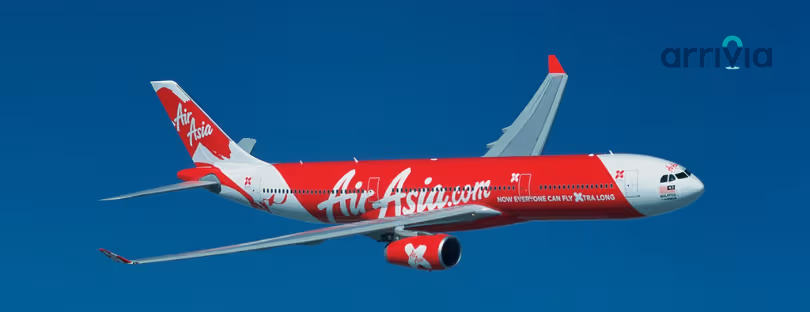
The International Air Transport Association (IATA): The Backbone of Global Aviation
If you’ve ever stepped foot on an airplane, you’ve indirectly interacted with IATA. You might not have realized it, but this organization plays a massive role in making global air travel smooth, safe, and standardized.
But what exactly is IATA, and why is it such a big deal?
What is IATA?
The International Air Transport Association (IATA) is like the behind-the-scenes maestro of the airline industry. Established in 1945 in Havana, Cuba, IATA was created to facilitate airline cooperation, ensure safety, and make global air transport as efficient as possible. Today, its headquarters are in Montreal, Canada, and it has over 300 member airlines from more than 120 countries, representing over 80% of global air traffic. That’s huge!
Why Does IATA Matter?
Imagine a world where every airline has rules, ticketing systems, and operational standards. Chaos, right? That’s exactly what IATA prevents. It sets industry-wide standards for everything from baggage policies and flight safety to ticketing and airline codes. Ever noticed those three-letter airport codes like LAX, JFK, or CDG? Yep, that’s IATA.
IATA ensures that whether you’re flying from Tokyo to Toronto or Sydney to São Paulo, there’s a seamless experience across airlines and airports. It’s the reason you can book a flight with one airline but seamlessly transfer to another under the same itinerary.
The Role of lATA in Air Travel
1. Safety First
Aviation is one of the safest modes of transportation, and IATA has a lot to do with that. They developed the lATA Operational Safety Audit (IOSA), a global benchmark for airline safety. Airlines that want to be part of lATA must pass this rigorous audit, ensuring they meet the highest safety standards. In short, if an airline is IATA-certified, you know it takes safety seriously.
2. Standardization of Codes and Policies
Ever wondered why your boarding pass has a three-letter airport code? Or why your baggage tag has a series of numbers and barcodes that somehow ensure your suitcase meets you at your final destination? That’s lATA at work. They assign unique airport and airline codes, making everything from flight bookings to baggage handling efficient and universal.
3. Simplifying Ticketing and Payments
IATA’s Billing and Settlement Plan (BSP) makes it easier for airlines, travel agencies, and passengers to handle payments. It streamlines transactions between airlines and travel agents, reducing the complexity of international ticket sales. Without it, booking flights through different airlines and agents would be a logistical nightmare.
4. Advocating for Airlines
IATA isn’t just about rules and regulations; it also advocates for airlines. From negotiating lower airport fees to lobbying for better environmental policies, IATA ensures airlines have a collective voice on global aviation matters.
5. Pioneering Sustainability Initiatives
With climate change being a pressing issue, aviation has come under scrutiny for its carbon footprint. IATA has committed to achieving net-zero carbon emissions by 2050. This involves initiatives like promoting sustainable aviation fuel (SAF), improving operational efficiencies, and investing in carbon offset programs. It’s a long road ahead, but lATA is spearheading industry-wide efforts to make air travel greener.
The Challenges lATA Faces
Despite its importance, IATA doesn’t have it easy. The aviation industry is constantly evolving, and IATA has to keep up with a host of challenges:
- COVID-19 Recovery: The pandemic hit the airline industry hard, grounding flights and causing billions in losses. IATA has played a crucial role in helping airlines recover, implementing standardized health measures, and pushing for travel corridors to reopen global travel.
- Rising Fuel Costs: Aviation fuel prices fluctuate wildly, affecting airline profitability. lATA works with governments and industry partners to develop strategies for cost efficiency and sustainability.
- Regulatory Hurdles: Different countries have different aviation laws, making it tough for airlines to operate seamlessly. IATA helps bridge these gaps by negotiating international agreements and advocating for more standardized regulations.
Fun Facts About lATA
- The first IATA meeting in 1945 had just 57 airlines. Today, it has over 300 members.
- IATA’s official language is English, but it operates in a globally diverse industry.
- IATA codes are used universally—from airline tickets to cargo shipments.
- The organization doesn’t control airlines, but it influences how they operate through its global standards and regulations.
The Future of IATA and Air Travel
So, what’s next for lATA? With technology advancing at breakneck speed, the organization is focusing on digital transformation. This means:
- Biometric Check-ins: More airlines are rolling out facial recognition and digital IDs to speed up airport security and boarding.
- Improved Baggage Tracking: New RFID (Radio Frequency Identification) technology is being implemented to minimize lost luggage.
- More Sustainable Aviation Fuel: IATA is pushing airlines to adopt SAF and reduce dependency on traditional jet fuel.
Final Thoughts
Next time you book a flight or check your bag, take a moment to appreciate IATA’s impact. Without it, air travel wouldn’t be the smooth, interconnected system we rely on today. Whether you’re a frequent flyer, an occasional traveler, or just an aviation enthusiast, IATA’s work ensures that the airline industry remains safe, efficient, and future-ready.
So, what do you think? Have you ever had an experience where IATA’s influence made your trip smoother?










